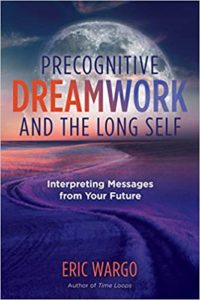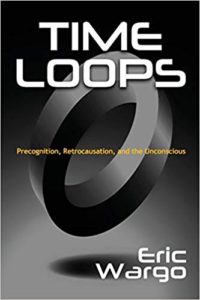Eternal Sunshine
The inspiring American story is that we can put the past behind us and reinvent ourselves and our lives. It is the subtext of most American movies, and our heroes, the characters played in films by guys like Tom Cruise or George Clooney, are ones who don’t let themselves be burdened by the past. There is only the present moment, and we have only to look to the future. “There are no answers, only choices,” says Clooney in Solaris. And Cruise (in Magnolia), parodying his usual roles, laments his past weakness: “I was swimming in what was.” These are tough guys and the Now is firmly in their meaty clutches.
It is rare for a filmmaker to own up to how hard choosing one’s destiny is for real humans. The modern manuals of moviewriting (Syd Field, Robert McKee, etc.) don’t make room for protagonists stuck in the past. But there are exciting recent exceptions: P.T. Anderson in Magnolia, a film about how “we may be through with the past but the past ain’t through with us,” and especially Charlie Kaufman in Eternal Sunshine of the Spotless Mind, a film about how obliterating the past, cleansing us of our painful histories, doesn’t work. The past (like past life in Jurassic Park) will find a way. I keep telling people I think this is the best film of the 21st Century so far. It’s sure close.
This theme is foreshadowed so subtly in an overheard phone conversation in Dr. Mierzwiak’s office: Some patient wanting the procedure for a third time in a row. Why should such a thing be necessary, we ask? Then Mary, we realize, falls in love all over again with the Doctor after her procedure. And of course, the main characters do the same thing.
Dr. Mierzwiak (Tom Wilkinson) is a sympathetic character, likeable, human, doing the right thing (such as making room for Jim Carrey immediately when Carrey learns of Clementine’s procedure), and in a way, he is the tragic center of the film: He believes in the power of his technique to erase painful memories, but his technique doesn’t work. People keep re-falling in love with who they were supposed to fall in love with. He can’t stem the tide, or make things better for people. And it looks, at the end, like he’s going to lose his marriage as a result. He is unable to get the better of his blunders.
Kaufman’s protagonists (clearly images of himself) are a response to the stereotypical American hero firmly in command of his own destiny. Kaufman’s protagonists are shy men, and reticent, crippled by self-doubt, who fall in love too easily with strong women, women who mock their passive and uncertain stance in life, of not going for what they want. When Catherine Keener (in Being John Malkovich) says, on the couch, “there are two kinds of people, those who go after what they want, and those who don’t”; or when Kate Winslet, in the crumbling beach house in ESSM, says “just go back then” and Jim Carrey explains that he did go back “because you said it so coldly, so dismissively.”
That moment really hit the nail on the head for me. To be confronted by another person’s ability to desire and act, and to try hard to read it and form a response, but to feel so rejected by it because that freedom doesn’t, at least at that moment, exist in you.




I love this movie and this review kind of makes me understand why. I need to watch it again, but it left me completely drained after watching it once. In addition to the story itself, I also thought the soundtrack added to its power. Great review. Thank you.